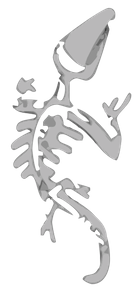
Posted
Hi,
After looking at both the manual and YouTube videos, I need some help to understand how / why you need the Snapshot function to transform figures.
When I use snapshots I create an extra window, which I seem to have to save separately, when all I want to do is fine-tune a figure and embed it into a library.
Is this the correct process?
Why are two windows generated if you want to just work within a single composition?
Thanks for any help!
Regards,
Mike
Di., 06.03.2018 - 00:29 Permalink
With snapshotting you take a "snapshot" (d'oh) of data that is generated by repetition/looping, inheritance, morphing or variation (maybe there are other processes/sources involved, perhaps Andre can shed some light on this) and have Synfire spell out the implicit data in an explicit form.
I usually employ this feature when I want to have a modification in repeated or inherited data, in 99% it's Figure or Harmony vectors. In my videos the snapshot function gets used for e.g. creating ending figures in a ending container or diverging chord progressions for variations.
Example for using a snapshot in an ending container - here it's a figure being snapshotted and then simplified for the ending.
The snapshot allows you to modify data in one place without affecting it in another where it comes from.
Di., 06.03.2018 - 12:00 Permalink
Thanks much for pointing me back to your video.
It just goes to show that sometimes repeated viewing helps to let the information in.
I quickly tried to duplicate what you did with a 10-measures of a string quartet bit that I copied.
I had to rush to work before I could really copy all of your actions, but inadvertently learned a few new tricks in the process.
I didn't have time - yet - to work on copying figures without creating a new window to save.
I want to figure out what I'm doing wrong there, as I noticed you didn't have to do that. Maybe a few more views of your video will show me... I'll update you the next time I have a chance to use SynFire - probably tomorrow, due to work.
Thanks again.

